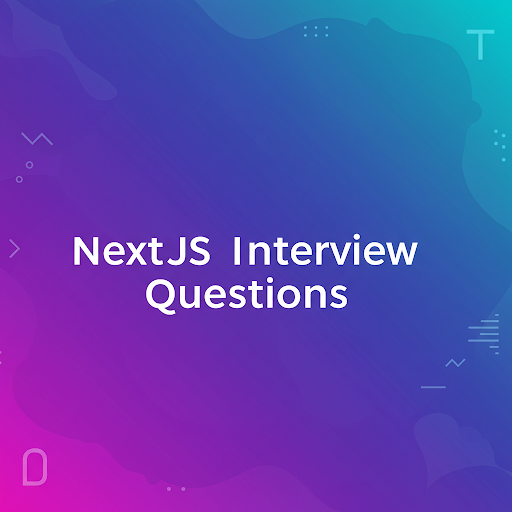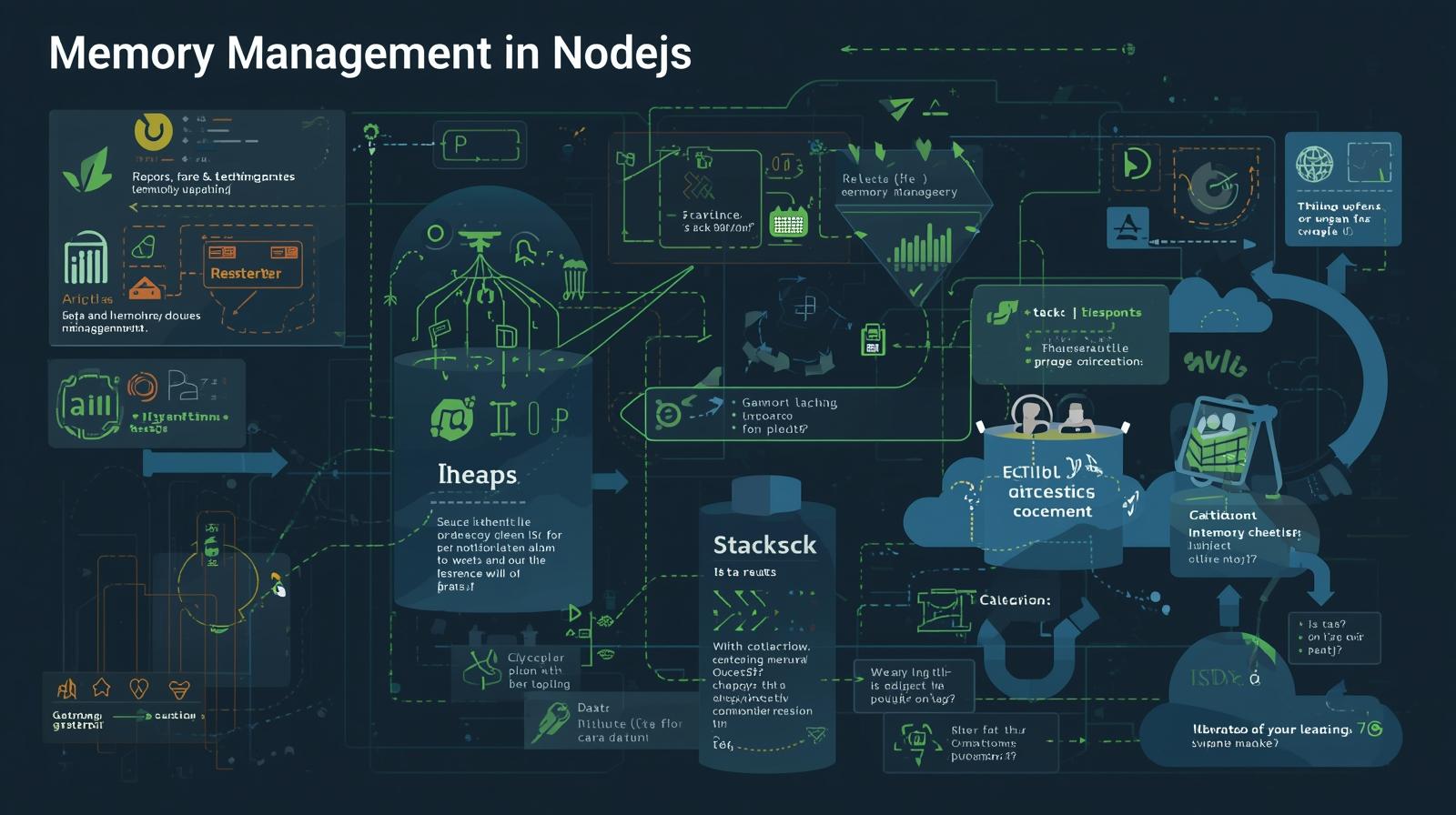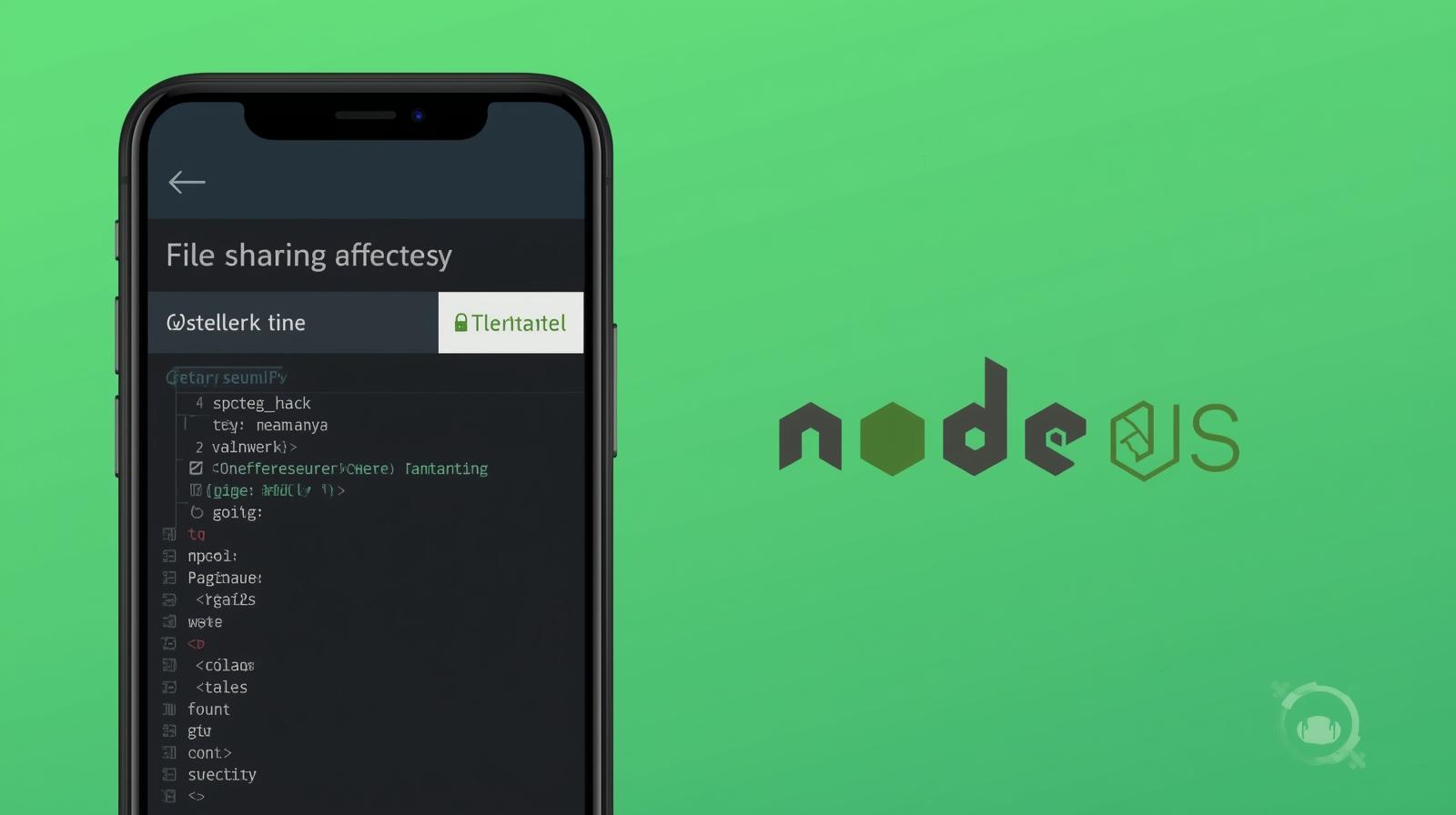Top Node.js Interview Questions and Answers for 2025

Prepare for your next Node.js interview with these top Node.js interview questions and answers. Covering beginner to advanced concepts, this guide will help you crack your interview.

Top Node.js Interview Questions and Answers for 2025
Node.js is a popular runtime environment that allows developers to execute JavaScript on the server side. If you're preparing for a Node.js interview, it's essential to have a strong grasp of its fundamental and advanced concepts. Below is a comprehensive list of Node.js interview questions and answers to help you succeed.
1. What is Node.js?
Node.js is an open-source, cross-platform JavaScript runtime environment that allows JavaScript to be executed outside of a web browser. It is built on the V8 JavaScript engine and uses an event-driven, non-blocking I/O model, making it efficient and scalable for real-time applications.
2. What are the key features of Node.js?
Asynchronous and Event-Driven: Non-blocking I/O operations.
Single-Threaded: Uses event looping for better performance.
Fast Execution: Built on Chrome’s V8 JavaScript engine.
NPM (Node Package Manager): Comes with a vast repository of libraries.
Cross-Platform: Can run on Windows, macOS, and Linux.
3. What is the difference between synchronous and asynchronous programming in Node.js?
Synchronous: Blocks the execution of code until the operation is complete.
Asynchronous: Executes operations without blocking the main thread, using callbacks, promises, or async/await.
4. What is an Event Loop in Node.js?
The event loop is the mechanism that allows Node.js to handle non-blocking I/O operations efficiently. It continuously checks the call stack and callback queue, executing tasks asynchronously.
5. What are Promises in Node.js?
Promises are used to handle asynchronous operations in JavaScript. A promise has three states:
Pending: Initial state, operation not completed.
Resolved (Fulfilled): Operation completed successfully.
Rejected: Operation failed.
Example:
const fetchData = new Promise((resolve, reject) => {
setTimeout(() => {
resolve("Data fetched successfully!");
}, 2000);
});
fetchData.then(data => console.log(data)).catch(error => console.log(error))6. What is the difference between require() and import in Node.js?
require()is the CommonJS module system used in Node.js.importis the ES6 module system, which requires enabling ES modules inpackage.json.
Example:
const fs = require('fs'); // CommonJS
import fs from 'fs'; // ES6 Modules7. What is Middleware in Express.js?
Middleware functions in Express.js are functions that have access to the request and response objects and the next function. They can:
Modify the request or response.
End the request-response cycle.
Call the next middleware in the stack.
Example of middleware:
app.use((req, res, next) => {
console.log('Middleware executed');
next();
});8. What is the difference between process.nextTick() and setImmediate()?
process.nextTick()executes the callback at the end of the current event loop cycle before any I/O operations.setImmediate()executes the callback in the next event loop cycle after I/O operations.
Example:
process.nextTick(() => console.log("Next Tick"));
setImmediate(() => console.log("Set Immediate"));9. How does Node.js handle concurrency?
Node.js handles concurrency using its single-threaded event loop and non-blocking I/O model. It uses asynchronous callbacks, promises, and worker threads to manage concurrent operations efficiently.
10. What are Streams in Node.js?
Streams are objects that allow data to be read or written in chunks, making them useful for handling large files efficiently.
Readable Streams:
fs.createReadStream()Writable Streams:
fs.createWriteStream()Duplex Streams: Can be read and written.
Transform Streams: Can modify data while passing through.
Example:
const fs = require('fs');
const readStream = fs.createReadStream('input.txt');
readStream.on('data', chunk => console.log(chunk.toString()));Conclusion
These Node.js interview questions cover essential topics that will help you prepare effectively. Whether you're a beginner or an experienced developer, understanding these concepts will boost your confidence in any interview.
If you're looking for more Node.js resources, check out our other blogs on Codercrafter.









